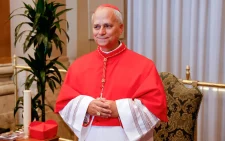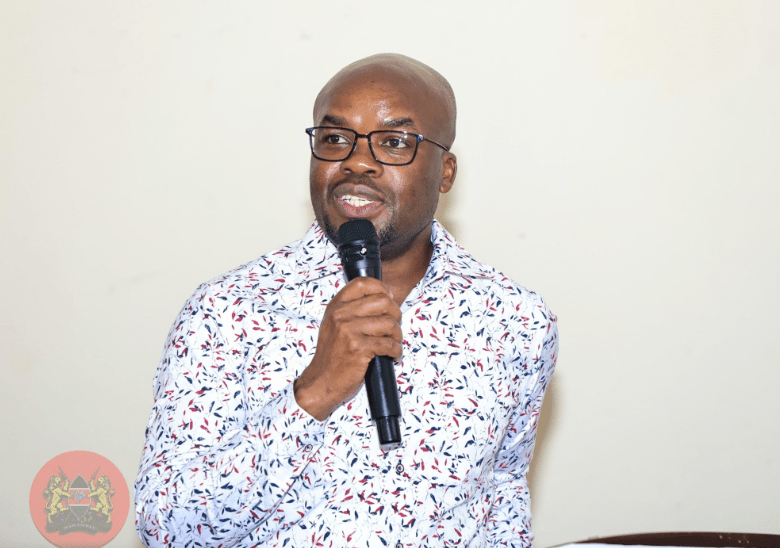What do you do with dead loved ones’ social media?

When a loved one dies, they leave behind their online legacy that may be fodder for scammers or a jarring reminder for many who knew them, raising question as to the next step in managing their digital footprints.
Anna Mwikali
On November 30, last year, I received a Facebook reminder of my late best friend’s birthday. She was to turn 30 years old.
A peek into her profile was a sting into my healing wound, not forgetting the birthday wishes of Facebook friends and followers who were unaware of her demise.
I couldn’t help but wonder: what should we do with social media profiles of our beloved once they die? Should they be deleted or kept on as a reminder of their lives?
Alvin Nyongesa, 26, relates to this feeling all too well, having lost his sister, Elizabeth in 2019.
“Keeping her Facebook account active reminds me of her presence and impact in my life.
Removing it would feel like I’m completely eradicating her from my life and it kills me,” he remarks. But that’s not the only reason.
Malicious information
“Mostly, I keep tabs on people’s activities on her profile such as those who post photos in remembrance of her during her death anniversary.
It’s particularly important to monitor such activities to avoid malicious information being floated around through her account,” he adds.
Brian Rotich understands the importance of family more than ever, having selected his younger brother as his next of kin to manage all his social media platform passwords, including emails in case of his demise.
“Doing so will help to secure all my accounts from hackers because my brother can monitor all suspicious activities if or when they occur as I do now.
The decision to close or keep the accounts active will depend on him because he has reserved all legal rights to do whatever he wants with them,” says Rotich.
Data security
Robert Wamwea, a life and executive coach says, “It is best if the family can agree to close the account of their departed.
I have also seen people use the account and convert it into a farewell page for lost friends and well-wishers.”
“However, the main reason people tend to leave social media accounts hanging is that they only connect with friends and tend to avoid or even block their family members,” he adds.
The most common method of exercising post mortem privacy and data protection, as Wamwea advocates, is commodification of personal data, which advocates for the “data freedom” of deceased individuals.
“This means that data regulators maintain access and the authority to process information of the departed individuals.
For all those who have never thought of choosing a data regulator for their social media accounts, I strongly recommend doing so because hackers are on the rampage these days. Basically, any person you trust with your life is the best.” he adds.
Social media platforms offer various options to relatives of the deceased to determine what they can do with the accounts.
Facebook and Instagram, for example, offer the option of memorialising the account.
For Facebook, a memorialised account displays the term “Remembering” next to the individual’s profile.
With this option, the account owner must have selected a legacy contact, someone who will handle the account upon their demise.
However, this contact will not be able to take over the account or post as the or send messages as the deceased.
The activities are restricted to changing photos- both profile and cover, responding to friend request and pinning posts.
The legacy contact is also able to download the deceased’s Facebook information.
On Instagram, on the other hand, once the account is memorialised, it remains as it was when the deceased last used it.
Facebook also offers the option of deleting the account. A close family member will have to provide proof of relationship to the deceased and a photograph or scan of their death certificate.
In case the death certificate is unavailable, they can use an estate letter or obituary, a last will or birth certificate or memorial card or a power of attorney in its place.
Duke Mongei, 29, took a different option for his late wife after losing her during childbirth in September 2019.
They were always open with each other and she had named him next of kin on all her accounts, including social media, saccos and bank accounts.
Moving on
He often posts memorial photos featuring him and his late wife or updates of their beautiful baby girl on her Facebook page.
He uses the cellphone she used to own, having retained her sim card and registration details.
“After my wife passed on, I was advised by several people about what I should do with her Facebook account. Some told me to post as many photos of her as I could, while others advised to close her account so that I can move on faster,” Mong’ei says.
“In the end, I learnt that grieving is different for everyone, so no one can really tell you what you should do.
I am particularly glad my late wife and I were honest with each other and that she chose me as the primary beneficiary of her accounts because I can keep an eye on what happens on her platforms,” he adds saying when and if he feels ready to close her accouts, he will do so.
“However, right now, I still need to feel her presence in my life and keep her memory alive,” he explains.
For other platforms such a Twitter, LinkedIn, family members or authorised individuals can delete or deactivate a deceased’s account upon submitting a request and documents to show their link to the deceased and proof of death.












